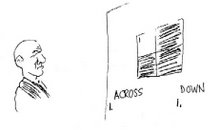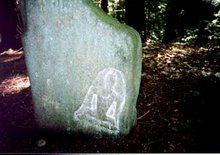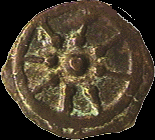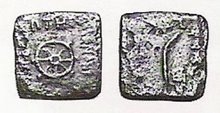The Maha-Prajna-Paramita-Hridaya Sutra
This have I heard, at one time the Buddha - with many Bodhisattvas and a company of Bhikshus - was staying at Rajagaha on Mt. Gridharakuta. The Buddha was sitting apart absorbed in Samadhi. The Ven. Sariputra, influenced by the Buddha, spoke thus to the Noble Bodhisattva Avalokitesvara:
"If a son or daughter wishes to study Prajnaparamita (perfect wisdom), how is he to do so ?
The noble Avalokitesvara replied to the Venerable Sariputra:
"If a son or daughter wishes to study Prajnaparamita, he must first expel the idea of ego-selfness. Let him think thus: Personality? What is that? Is it an enduring entity? Or is it an element that will pass away? Personality is five grasping aggregates: form, sensation perception, discrimination, consciousness, all of which are by nature empty of substance.
Because form is emptiness, emptiness is not different from form. Also, sensation is emptiness, emptiness is not different from sensation. Indeed, emptiness is sensation.
Also, perception is emptiness, emptiness not different from perception. Indeed, emptiness is sensation.
Also, discrimination is emptiness, emptiness is not different from discrimination. Indeed, emptiness is discrimination.
Also consciousness is emptiness, emptiness is not different from consciousness. Indeed, emptiness is consciousness.
Thus, O Sariputra, all things having the nature of emptiness have no beginning and no ending.
They are neither faultless nor faulted; they are neither perfect nor imperfect.
In emptiness there is no form, no sensation, no perception, no discrimination, no consciousness.
There is no eye, no ear, no nose, no tongue; no sensitiveness to contact, no mind.
There is no sight, no sound, no smell, no taste, no touch, no mental process, no object, no knowledge, no ignorance.
There is no destruction of objects, there is no cessation of knowledge, no cessation of ignorance.
There is no Noble Four Truths: no pain, no cause of pain, no cessation of pain, no Noble Path leading to the cessation of pain.
There is no decay and no death, and no destruction of the notion of decay and death.
There is no knowledge of Nirvana, there is no obtaining of Nirvana.
Why is there no obtaining of Nirvana? Because Nirvana is the realm of nothingness.
If the ego-soul of personality was an enduring entity it could not obtain Nirvana.
It is only because personality is made up of elements that pass away, that personality may attain Nirvana.
So long as man is seeking highest perfect Wisdom, he is still abiding in the realm of consciousness.
If he is to realize Nirvana, he must pass beyond consciousness.
In highest samadhi (meditation), having transcended consciousness, he has passed beyond discrimination and knowledge, beyond the reach of change or fear; he is already enjoying Nirvana.
The understanding of this and the acceptance of this is Prajnaparamita.
All the Buddhas of the past, present and future who attain samadhi, (Budh) awake to find themselves realizing Prajnaparamita.
Therefore, O Sariputra, anyone seeking self-realization of Prajnaparamita, the Transcendent Truth, the Truth that spans the troubled ocean of life and death: that safely carries all seekers to the undiscovered country, from whose bourn* no traveler returns must listen to the Mantra, the Great, Mysterious Mantra: O'om gate, gate, paragate, parasamgate, bodhi, svah!
Gone, gone to that other country; safely passed to that other country, wake up there, with a cheer."
O Prajnaparamita !
So mote it be.
*There are two derivatives of bourn. Bourn from old French means "boundary" which is often the attributed meaning of bourn in Shakespear. However, the old English meaning is "river".
Country is also variously translated into 'realm' or 'shore.' All that is being communicated on and about this point is the passage from here to not here or perception to no perception - or specifically from form to emptiness. (There is no distinction among any of them.)
Other readings: one, two, three.
Monday, August 9, 2010
Subscribe to:
Comments (Atom)







